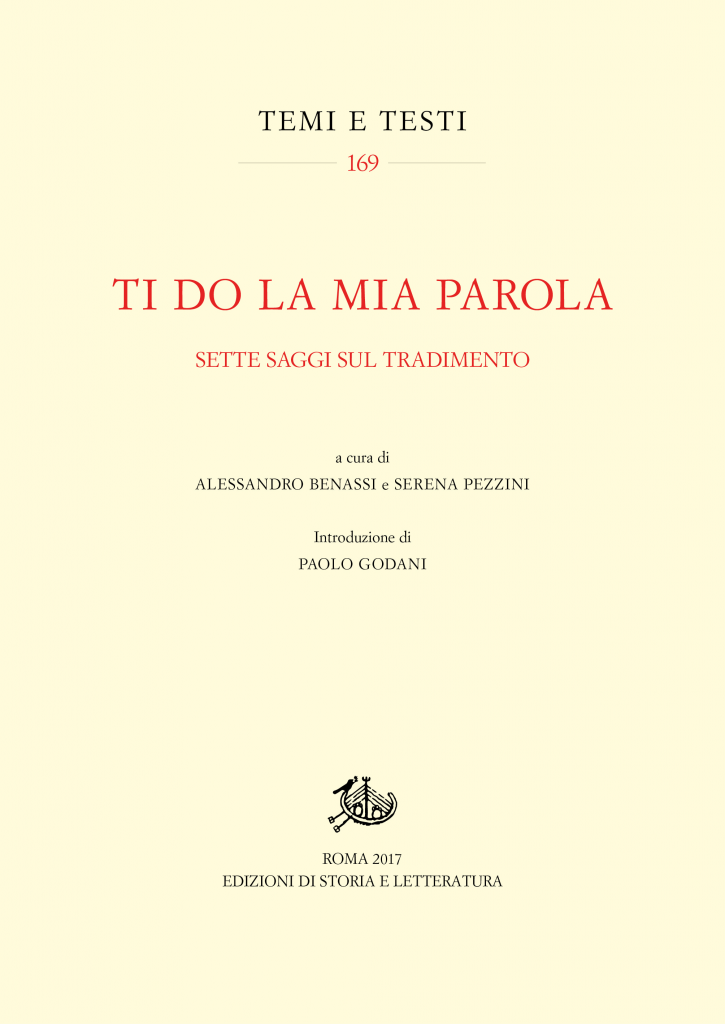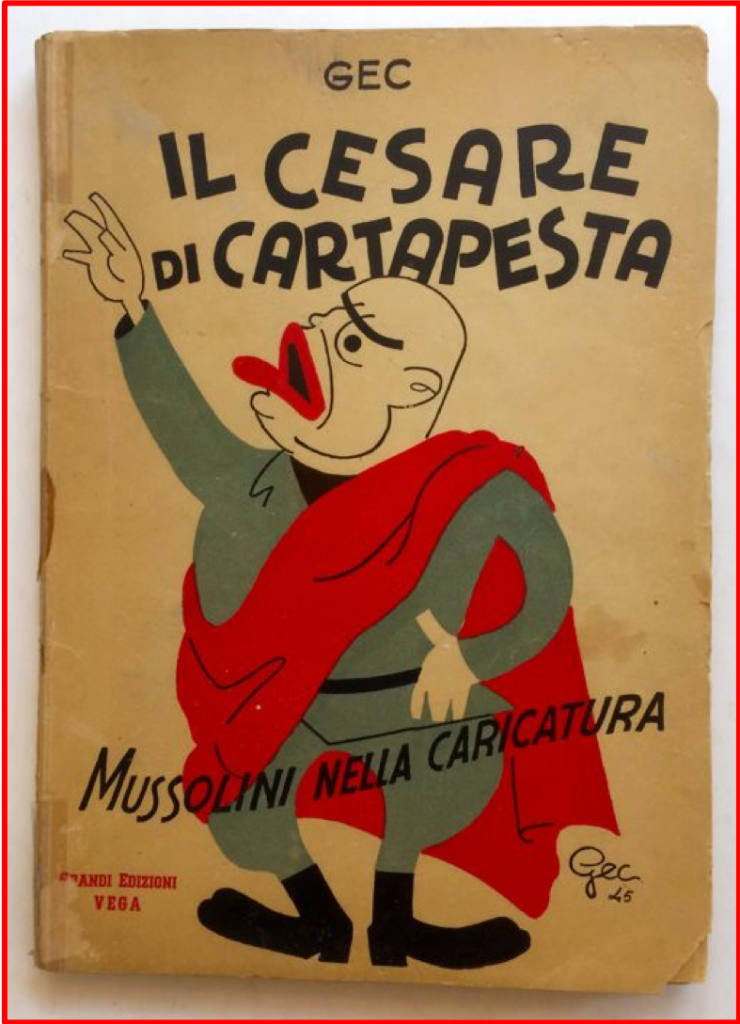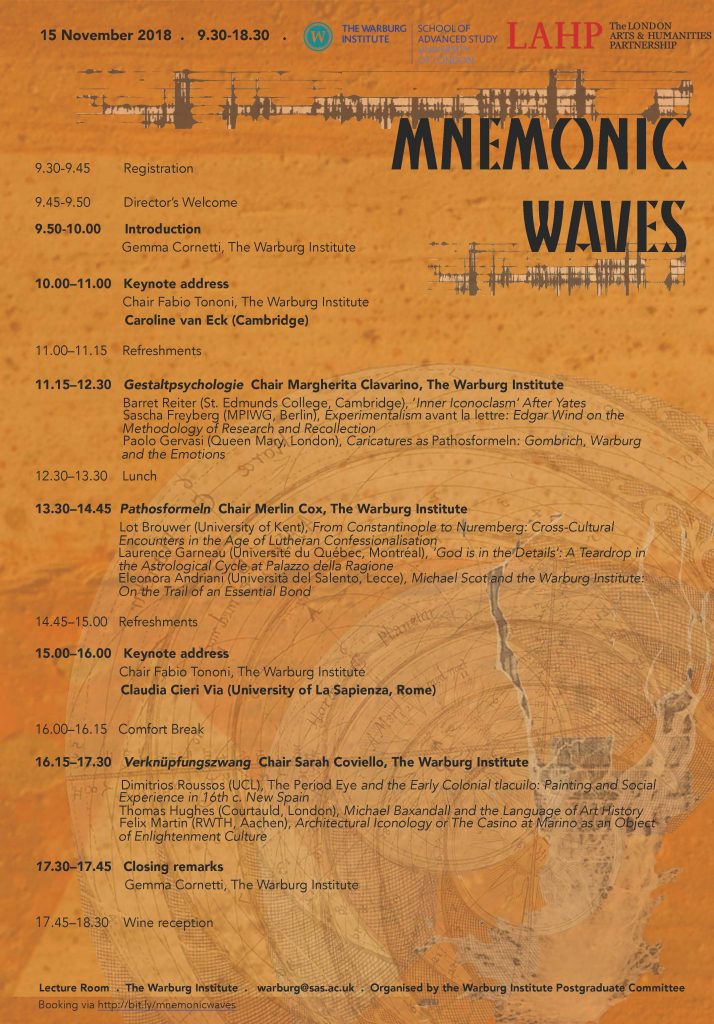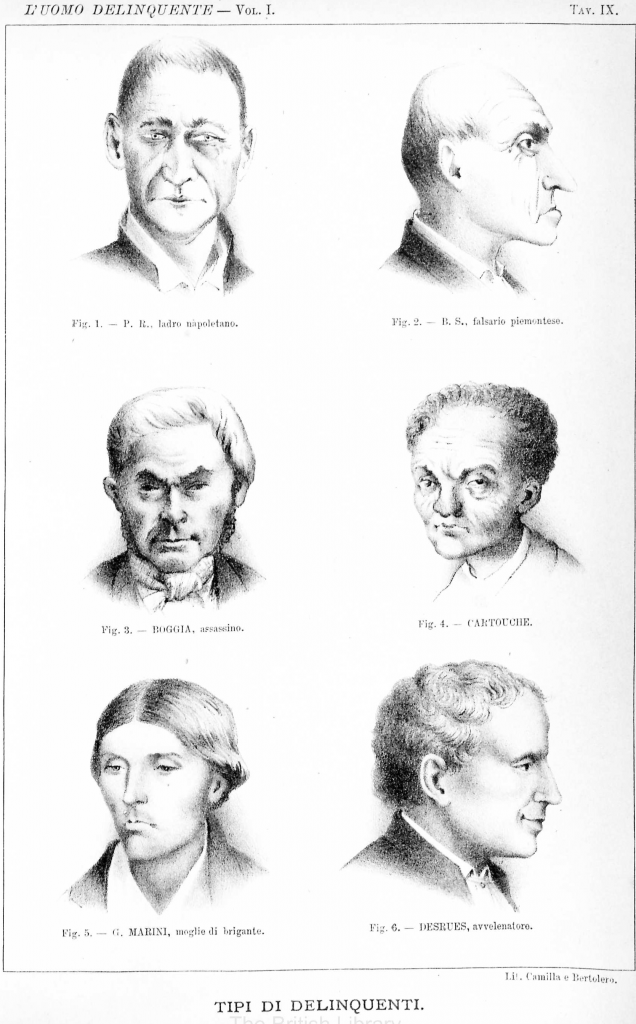The third issue of the journal L’Età del Ferro has just been released. In it I published the following text, responding to the harsh criticisms opposed to the assumption of neurocognitive perspectives in the study of literature, and more in general to the most recent development in the field of humanities, contained in the journal’s previous issue. The complete title of my intervention sounds Doctor Strangelove or: How I Learned to Stop Worrying and Love the Humanities.
Category Archives: 16th Century
Oracles
I participated in the organisation of the project Oracoli. Saperi e pregiudizi al tempo dell’Intelligenza Artificiale, designed by the publisher Luca Sossella Editore with Emilia Romagna Teatro Fondazione and Unipol Gruppo. It is a series of lectures on the philosophical, historical, social, ethical and economic challenges connected to the emergence of artificial intelligence. I designed and edited a journal describing the project and expanding the reflection around the main issues it will address.
I also published an article in the online magazine CheFare, Oracoli’s partner, discussing how literature over time diversely imagined possible extensions, evolutions, empowerments and re-creations of the human mind and body. Continue reading
Caricatures as Pathosformeln
Last November 15 I participated in the postgraduate symposium of the Warburg Institute Mnemonic Waves, with a paper on caricatures and the post-Warburgian studies titled Caricatures as Pathosformeln. Gombrich, Warburg, and the Emotions, of which I publish here the text.
Mnemonic Waves
I’m really excited to be one of the speakers of the forthcoming symposium Mnemonic Waves, to be held in London at the Warburg Institute next November 15.
Caricature as emotional knowledge
I publish here the talk I’ve given at the Mis-Shapings conference last September 13 at Queen Mary University.
Do we believe in physiognomy? Do we believe, as the Italian anthropologist Cesare Lombroso did, that psychological, emotional, moral attitudes of the individuals can be divined by observing the shape and features of the face?
No, of course we don’t. Physiognomy is pseudo-science, dismissed knowledge, superstition. We can’t make assumptions merely relying on appearances. Can we?
Actually, we do. We do it in our daily life, often unintentionally. But even when we look at artworks we allow us to believe in physiognomy. Continue reading
Mis-Shapings
On Thursday 13th September 2018 will take place at Queen Mary University of London (Mile End Campus, Arts One Building, Room 128) the international conference Mis-Shapings. The Art of Deformation and the History of Emotions. I’m organising the conference, as coordinator of the Marie Skłodowska-Curie research project Misshaping by Words, in association with the Queen Mary Centre for the History of Emotions.
Concept
A well established and long-standing bond exists between the representation of the forms and postures of the human figure and the expression of emotions. But how does this change when the body represented is deformed or mis-shapen? This is a question that an interdisciplinary range of scholars, covering a wide chronological period that extends from the Renaissance to the 20th century, will explore in the one-day Mis-Shapings conference.
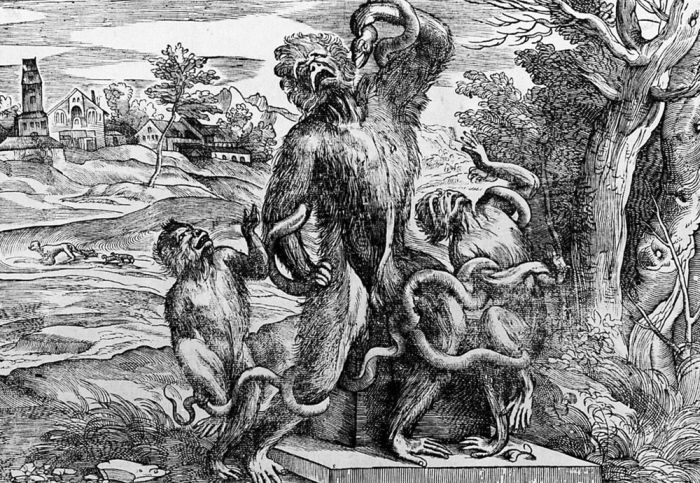
Niccolò Boldrini, Caricature of the Laocoon, after Titian, 1540
Mis-Shapings: abstracts
Here are brief descriptions of the papers that will be presented next September 13th at the Mis-Shapings conference.
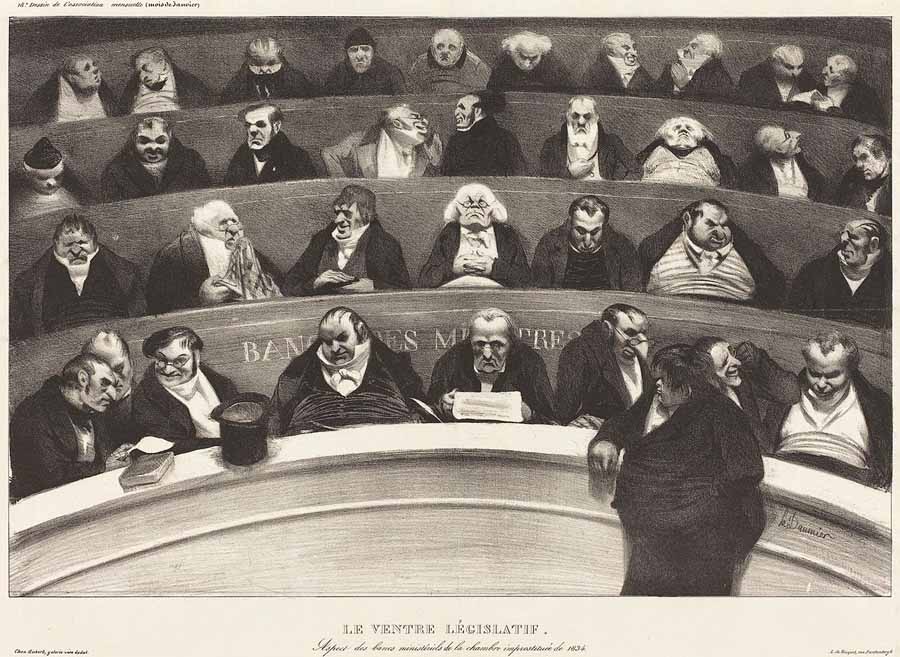
Honoré Daumier, Le ventre législatif, 1834
Mis-Shapings: speakers
Here are the bio-bibliographical profiles of the Mis-Shapings conference‘s speakers.
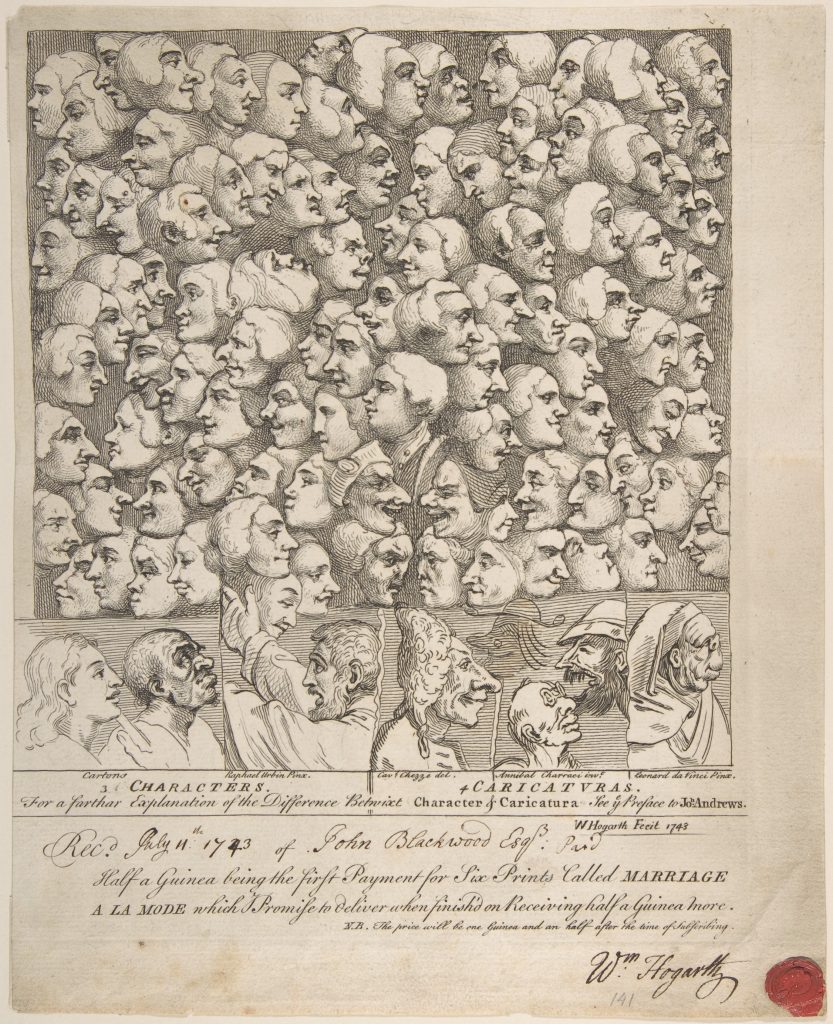
William Hogarth, Characters and Caricaturas, 1743
Portraits and caricatures
It has been published the volume Il dialogo creativo. Studi per Lina Bolzoni, edited by Maria Pia Ellero, Matteo Residori, Massimiliano Rossi, and Andrea Torre (Lucca: maria pacifini fazzi editore, 2017).
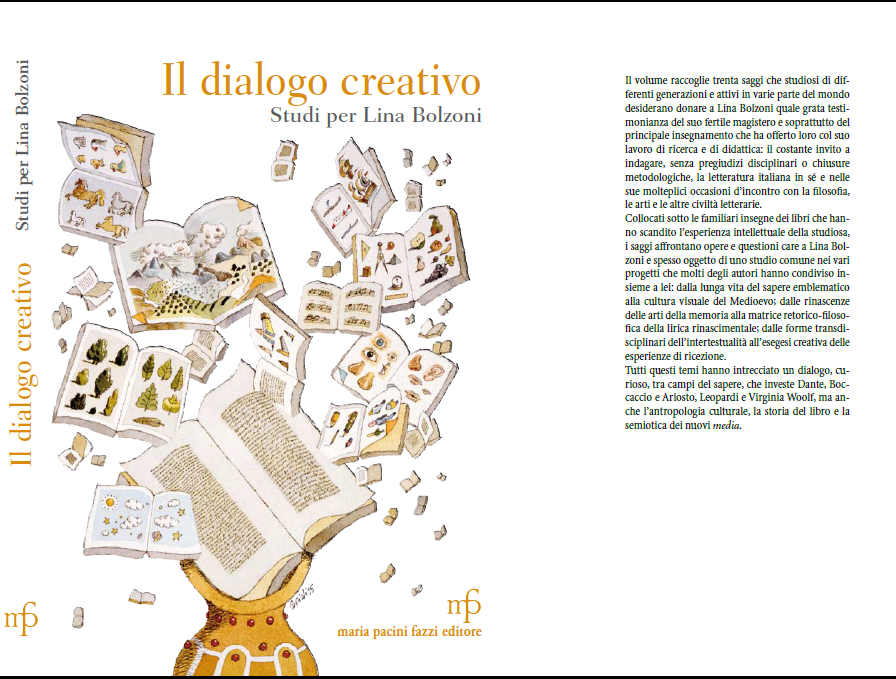
The book is conceived as an homage offered to Lina Bolzoni in the occasion of her retirement. Lina Bolzoni is an outstanding scholar in Renaissance Studies and established original, unexplored paths of inquiry regarding several aspects of visual and literary culture in the Early Modern period. It was my privilege to be one of her students and to collaborate with her as a post-doc researcher within the ERC project Galassia Ariosto. Continue reading
Emotional performances
It has been recently published the volume Ti do la mia parola. Sette saggi sul tradimento, edited by Alessandro Benassi and Serena Pezzini, with an introduction by Paolo Godani (Roma: Edizioni di Storia e Letteratura, 2017).
